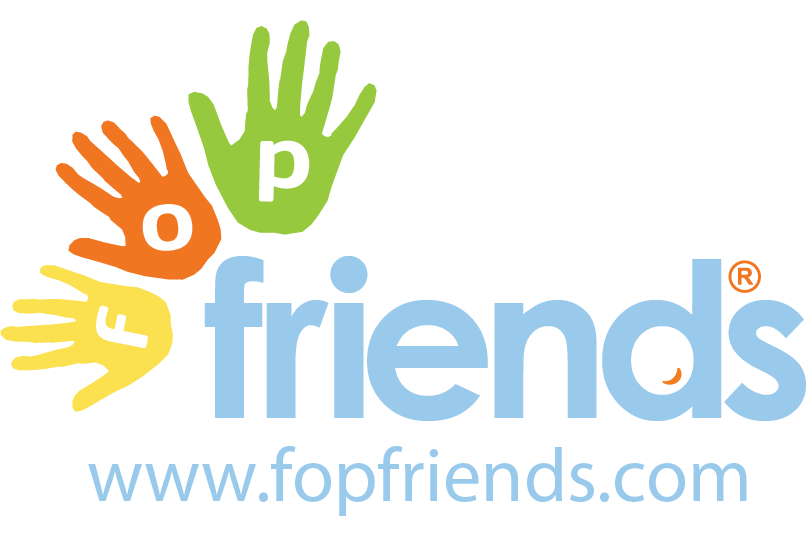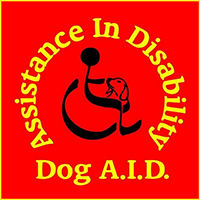Assistance Dogs

Many people with FOP have made the choice to have an assistance dog, with many more families considering it as an option. Having an assistance dog can significantly enhance the quality of life for people with additional needs. The dogs provide invaluable support, increase self-confidence, foster greater independence, and promote a sense of well-being and happiness, but perhaps most importantly become a cherished member of the family.
Here are just a few of the benefits:
Assistance dogs can be trained to provide physical support, balance, and stability to individuals with mobility impairments. They can also help with tasks such as dressing, undressing, and turning on lights or switches.
Assistance dogs can provide a sense of safety and security for their handlers. They can be trained to create physical barriers between their handlers and potential threats, as well as to respond to emergency situations by alerting others or seeking help.
Assistance dogs are trained to perform specific tasks to help individuals with disabilities carry out daily activities. They can assist with mobility, such as pulling a wheelchair, retrieving items, or opening doors, which promotes greater independence for the person they are assisting.
Some assistance dogs are trained to recognize and respond to specific medical conditions.
Assistance dogs provide emotional support and companionship, which can be particularly beneficial for individuals with mental health conditions. They can offer a calming presence, reduce anxiety and stress levels, and provide comfort during challenging situations.
Assistance dogs often serve as a social bridge, helping their handlers engage with others in various settings. These dogs can break the ice, spark conversations, and help reduce feelings of social isolation or awkwardness. They act as a positive focal point, attracting attention and creating opportunities for social interaction.

There are two main routes to acquiring an assistance dog.
Some organisations require the person to have their own dog, and then they offer support for the owner to train their dog to meet their own needs.
Secondly, some organisations provide already-trained dogs to people who meet the criteria. However, currently demand for these dogs is incredibly high and most organisations are not taking applications at present.
If you are looking to receive an assistance dog from a charity, you are advised to contact the charities directly and enquire about how to be placed on their waiting list.
Below are a list of charities and organisations who support those living with a disability have an assistance dog.
Assistance Dogs UK
Assistance Dogs UK is a coalition of assistance dog organisations that have been accredited by Assistance Dogs International (ADI) and/or The International Guide Dog Federation (IGDF).
ADUK members are non-profit organisations that work to the highest standards of assistance dog training and welfare. From guide dogs to medical alert dogs, from autism dogs to hearing dogs, our members train assistance dogs that change, and often save, the lives of their owners.
Visit their website to learn more about the support an assistance dog can provide. www.assistancedogs.org.uk
Dog A.I.D
Dog A.I.D empowers adults with physical/mobility based disabilities to train their own pet dog as an assistance dog. Potential clients are paired with an available trainer in their area.
The client is coached to train their pet dog using modern, safe, reward-based methods of dog training. The training usually takes place at the client’s home and in their local environment; occasionally it may be appropriate for the client to attend classes held by their trainer. This process can take between 1 and 2 years, depending on their prior training experience and the time and effort they devote to their training.
www.dogaid.org.uk
Support Dogs
Support Dogs’ aim is to improve the quality of life and independence of people with a wide range of physical disabilities by training their own pet dog as a disability assistance dog. Our disability assistance dogs are trained to assist and support their owners by carrying out tasks which are specifically tailored to their needs.
They normally train dogs aged between 1 and 3 years. Sadly due to the impact of the Covid pandemic they are currently dealing with a huge backlog of applications and so currently can only accept new applications for dogs aged between one and two years of age.
To learn more, download their information pack: Guide for Dog Applicants
To register your interest, visit: www.supportdogs.org.uk/forms/disability-assistance-registration
Dogs for Good
At Dogs for Good, they train dogs to help people affected by disability, dementia, autism, and other conditions and mental-health challenges — to live happier, healthier, more independent lives. Every dog is specially trained to help with practical tasks that many people with disabilities find difficult or impossible to do.
Dogs for Good run a ballot system to allocate dogs to clients to ensure fairness. Currently, they are not taking applications for new clients. You are advised to check back on their website regularly to find out when their ballot re-opens.
www.dogsforgood.org
Download their information pack: Assistance Dogs for Adults Information Guide







